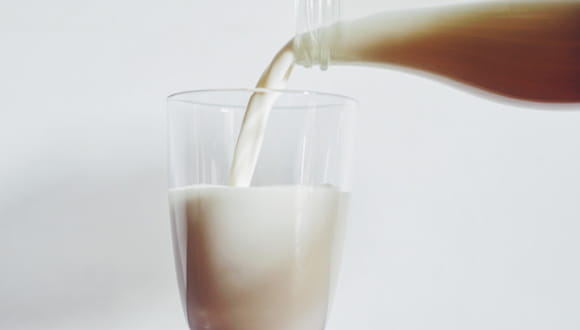We've all been told to drink our milk. As food-related advice goes, it's pretty solid. Milk is packed with important nutrients your body relies on — in fact, milk has even been called a superfood.
So, there's no question it should be an essential part of your diet…right?
The answer isn't quite so simple, according to Dr. Angela Chen, an internist with Houston Methodist Primary Care Group.
"Cow's milk offers several nutritional benefits, and for many it's a primary source of calcium. But there are a number of other foods that give milk a run for its money."
Are you healthier if you "got milk?"
There's a good reason milk is considered a basic part of a healthy, balanced diet. "It has nutrients your body needs, like calcium, vitamin D and potassium," says Dr. Chen.
However, it's not the only food that provides these building blocks for a well-balanced diet.
"If you're lactose intolerant, or simply don't like drinking milk, you have many other options. For example, dark leafy greens, beans, cooked broccoli, Greek yogurt, tofu and calcium-fortified orange juice are all good alternatives."
How much milk do you need to drink each day?
Your body relies on calcium to keep your bones healthy, your heart beating and your nervous system functioning — it's that important! So, how much calcium is actually in milk, and how many glasses do you need each day?
"Because milk is such an excellent source of calcium, it's often the one food we consider when striving to maintain healthy calcium levels. Depending on your age, your body needs between 1,000 and 1,200 mgs. daily," says Dr. Chen. That translates to two to three glasses.
But, a trip to your local grocery store will show you that milk is just one of many calcium-rich options.
What about non-dairy alternatives to milk?
For those who are lactose intolerant, vegan or are simply looking to vary your diet with a healthy alternative to milk, you're in luck: Non-dairy milks are more popular — and more plentiful — than ever.
For example, there's almond milk (has fewer calories than cow's milk), soy milk (has almost as much protein as cow's milk), hemp milk (has heart-healthy omega-3 fatty acids) and rice milk (best option for those with multiple allergies), just to name a few.
But, not all non-dairy milks are made equal.
"When choosing a non-dairy milk that's right for you, it's important to carefully read the nutritional information and know what to look for," explains Dr. Chen. "Non-dairy milk needs to be properly fortified in order to be a good source of calcium, vitamin D and protein."


